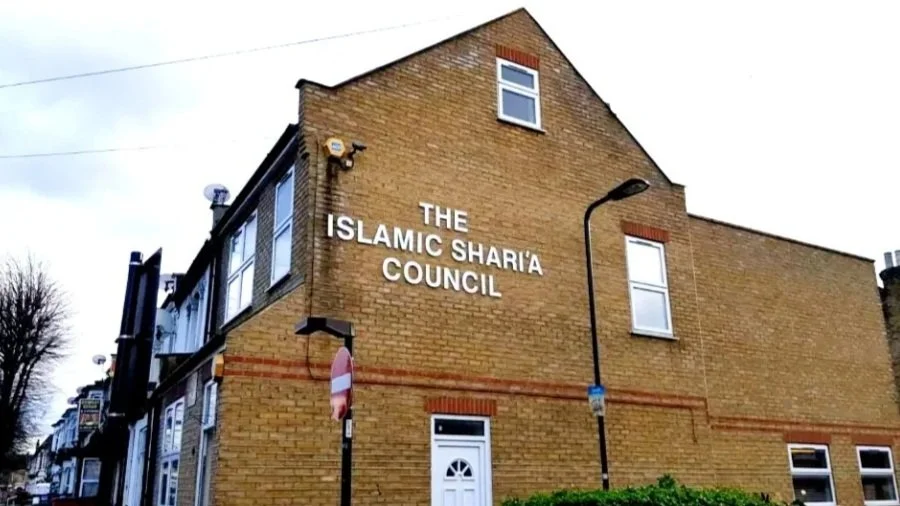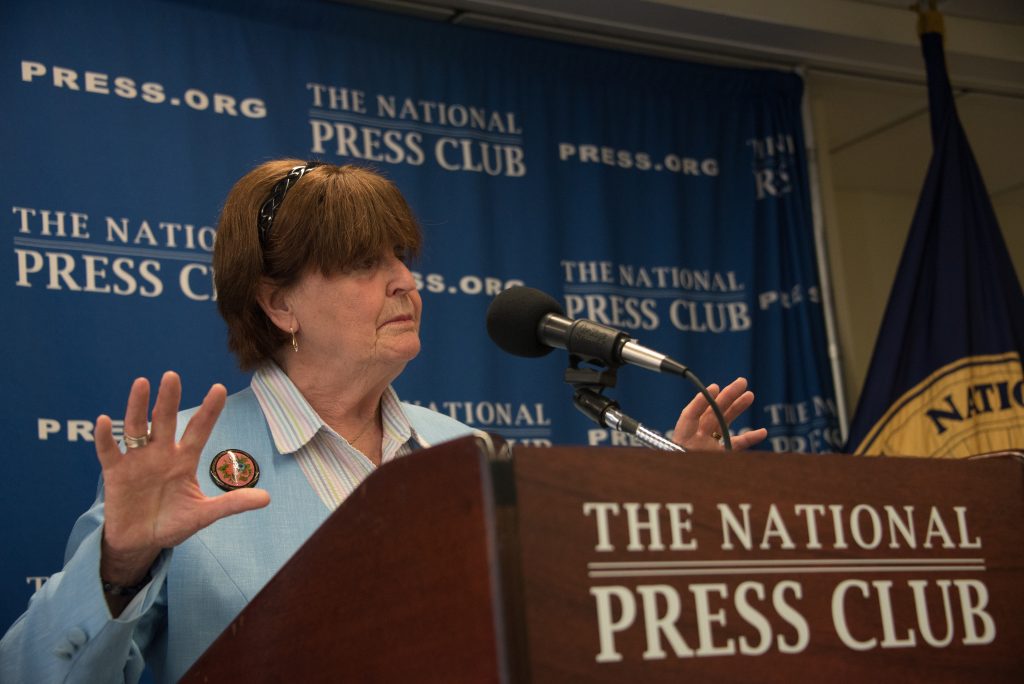
Brandon Reece Taylorian is an associate lecturer and researcher at the University of Lancashire (UK).
The post is a part of the Religious Law and Human Rights series.
Although the Church of England remains England’s established church and receives special privileges, such as being represented by 26 Lords Spiritual in the House of Lords, the United Kingdom (UK) as a whole is governed under secular laws.[1] While there is no clear separation of church and state enshrined in UK legislation, protections have been created for religious minorities who faced severe discrimination and persecution in previous centuries.[2] The first Muslim community to arrive on British shores comprised sailors recruited in India to work for the East India Company in the sixteenth century. Large-scale immigration of Muslims to Britain began in the post–World War II period, with Muslim migrants from former British colonies—predominantly Bangladesh, India, and Pakistan—recruited in large numbers to help rebuild the country.[3] While these Muslim communities, diverse in themselves, largely integrated with British culture, they naturally sought to maintain their cultural and religious identities. One way they have pursued this is by establishing Sharia councils.
Sharia councils in the UK arise out of a tradition in several Western secular democracies of allowing members of minority religious communities to be governed under their divine laws and ethical principles in civil matters and family disputes.[4] This tradition is based on the recognition that Western legal systems are heavily influenced by one or more Christian denominations that are likely to clash with some traditions and principles adhered to by minority communities who come from other faith backgrounds.
Allowing minority communities to establish religious courts to handle civil matters stems from the pluralistic principle of accommodating diverse religions within a secular system.[5] In the UK, however, this courtesy is not exclusively bestowed on the Muslim community. For example, the oldest Jewish court in the UK, known as the London Beth Din, was established in the early eighteenth century and remains today the central religious authority in Britain for many Orthodox Jews who utilize it for divorce proceedings and the arbitration of civil disputes.[6]

The first Sharia council established in the UK was the Islamic Sharia Council (ISC) in Leyton, East London, in 1982. The ISC and the other Sharia councils established in the UK are not formal courts of law but rather advisory bodies that issue recommendations in civil law and family matters from an Islamic perspective.[7] Sharia courts do not have legal standing in the UK, and their recommendations are non-binding. British law always takes precedence over Islamic law in the UK, particularly in matters of equality and human rights. Sharia councils are permitted to offer advice and recommendations to observant Muslims on Sharia-compliant finance, divorce, halal food, inheritance, family disputes, and marriage.[8] Another important function of Sharia councils is offering expert opinions to the British government on the customs of the Muslim community when their advice may be useful and warranted. Besides their advisory role, many Sharia councils also offer counselling services to advise Muslims on a range of family or personal dilemmas, based on Islamic principles.[9]
However, this role of Sharia councils under the British legal system is not without controversy. Right-wing media often invokes Sharia councils as a fear-mongering tactic to undermine support for religious pluralism in the UK. Perhaps most notably, some critics argue that Sharia councils discriminate against women in matters of divorce, child custody, and inheritance by prioritizing the interests of men in their rulings.
In a written statement to the UK Parliament in 2016, for example, Baroness Caroline Cox outlined four key concerns involving the operations of Sharia councils in the UK. Baroness Cox first pointed to the unequal access to divorce offered under Sharia, with Muslim men able to access divorce unconditionally while women require their husband’s consent or must petition a religious authority. Baroness Cox also raised concern over Sharia councils applying Islamic law beyond their legal remit, including “addressing cases of grievous bodily harm which should come to the police and the formal legal system.” Thirdly, Baroness Cox highlighted how some Sharia councils falsely refer to themselves as “courts” with apparent legal authority. Finally, Baroness Cox expressed her concern over Muslim women being coerced by family and friends to agree to go before a “Sharia court,” council, or arbitration tribunal rather than UK courts, due in part to their lack of awareness of alternative avenues for dispute resolution.

Baroness Cox brought these issues before the UK Parliament based on anonymous interviews conducted with Muslim British women who experienced these issues first-hand.[10] The interviewees raised concerns such as Sharia councils sanctioning polygamy, implementing discriminatory child custody policies and inheritance laws, and implicitly sanctioning domestic violence by taking no action in such cases.
While the cases brought before Sharia councils cover a wide range of civil matters, clashes with British secular law are consistently rooted in such issues of gender inequality.
It should be noted, however, that council decisions that conflict with statutory rights may be overruled by UK courts. In the 2013 case Al v. MT, the England and Wales High Court (EWHC) considered Sharia-based divorce and custody terms but applied English law to decide custody.
Alarmingly, it is estimated that more than 60% of Muslim women are in marriages sealed by a Nikah ceremony but unregistered under UK law, making these women vulnerable and highly dependent on Sharia councils, perhaps as a means of legitimizing polygamous marriage.[11] The 2018 case Akhtar v. Khan involved a divorce dispute in which the wife sought recognition of the marriage sealed by a Nikah ceremony to claim financial remedies. The EWHC initially found the marriage void, entitling the wife to some rights. However, the Court of Appeal later treated the union as a “non-marriage,” therefore withdrawing matrimonial rights and highlighting how Sharia recognition of a union can be meaningless under civil law if civil registration is missing.
Even given protections offered by UK courts, some have called for reforms to protect Muslim women from victimization. For eight consecutive years, Baroness Cox has submitted a Private Member’s Bill, called the Arbitration and Mediation Services (Equality) Bill, with the aim of achieving three outcomes: (1) to strengthen the duties of public bodies to ensure that women are made aware of their legal rights; (2) to strengthen the powers of the police and judiciary to protect victims of abuse; and (3) to prevent the operation of a parallel legal system by outlawing any person, such as a Sharia “judge,” falsely claiming legal jurisdiction. Although the bill received a second reading, it never completed its passage through Parliament and was not debated in the House of Commons due to a busy parliamentary schedule.
Currently approximately 30 Sharia councils operate across the UK, and an often inflammatory public debate about their future continues, with opinions ranging from closing all Sharia councils to working toward their reform.[12] For example, Baroness Cox suggested that, given women appear most affected, resources should be created to inform Muslim women about their legal rights under UK law and to highlight alternatives to Sharia councils. Other areas requiring reform include introducing legislation to address unregistered Muslim marriages to ensure legal recognition and protection for women.[13] Finally, some campaigners have advocated for the stricter regulation of Sharia councils, including domestic authorities exerting greater oversight to ensure councils adhere to ethical standards recognized under UK law, refrain from discriminating against women, operate within their legal remit, and remain accountable for directly engaging in practices considered harmful or allowing such practices to continue.[14]
References:
[1] Mark Hill, Change and Decay: The Twilight Years of an Established Church: 1994–2023, in The Legal History of the Church of England: From the Reformation to the Present 213, 213–32 (Norman Doe & Stephen Coleman eds., Bloomsbury 2024).
[2] Philip Jenkins, Religion, Repression, and Rebellion, 5(1) The Review of Faith & International Affairs 3, 5 (2007).
[3] Sophie Gilliat-Ray, Muslims in Britain: An Introduction 3–53 (Cambridge Univ. Press 2010).
[4] Maurits S. Berger, Understanding Sharia in the West, 6(2–3) Journal of Law, Religion & State 236, 236–73 (2018).
[5] Rabea Benhalim, Religious Courts in Secular Jurisdictions: How Jewish and Islamic Courts Adapt to Societal and Legal Norms, 84(3) Brooklyn Law Review 745, 745–800 (2019).
[6] Gerry Campbell, Karl A. Roberts & Neelam Sarkaria, Alternative Dispute Resolution, in Harmful Traditional Practices: Prevention, Protection, and Policing 175, 175–86 (Gerry Campbell, Karl A. Roberts & Neelam Sarkaria eds., Palgrave Macmillan 2020).
[7] Islam Uddin, Shariah Councils in the UK: Reform and Regulation, in The Sharia Inquiry, Religious Practice and Muslim Family Law in Britain 59, 59–77 (Samio Bano ed., Routledge 2023).
[8] Louisa Perreau, Gender Equality at the Test of Sharia Councils in the UK, 2(1) Youth & Globalization 65, 65–86 (2020).
[9] Shona Lester, The State and the Operation of Sharia Councils in the United Kingdom: A Critical Response to Machteld Zee, 17(1) Journal of Religion & Society 1, 1–9 (2015).
[10] Yvonne Prief, Muslim Legal Practice in the United Kingdom: The Muslim Arbitration Tribunal, in Legal Pluralism in Muslim Contexts 12, 12–42 (Norbert Oberauer, Yvonne Prief & Ulrike Qubaja eds., Brill 2019).
[11] Rajnaara C. Akhtar, Modern Traditions in Muslim Marriage Practices, Exploring English Narratives, 7(3) Oxford Journal of Law & Religion 427, 427–54 (2018).
[12] Amira Aftab, Religious Accommodation in the Secular State: The Sharia Debates in Australia, Canada, and the United Kingdom, 79 Studies in Law, Politics, & Society 85, 85–108 (2019).
[13] Islam Uddin, Nikah-only Marriages: Causes, Motivations, and Their Impact on Dispute Resolution and Islamic Divorce Proceedings in England and Wales, 7(3) Oxford Journal of Law & Religion 401, 401–26 (2018).
[14] Uddin, Shariah Councils in the UK, supra note 7, at 59–77.
